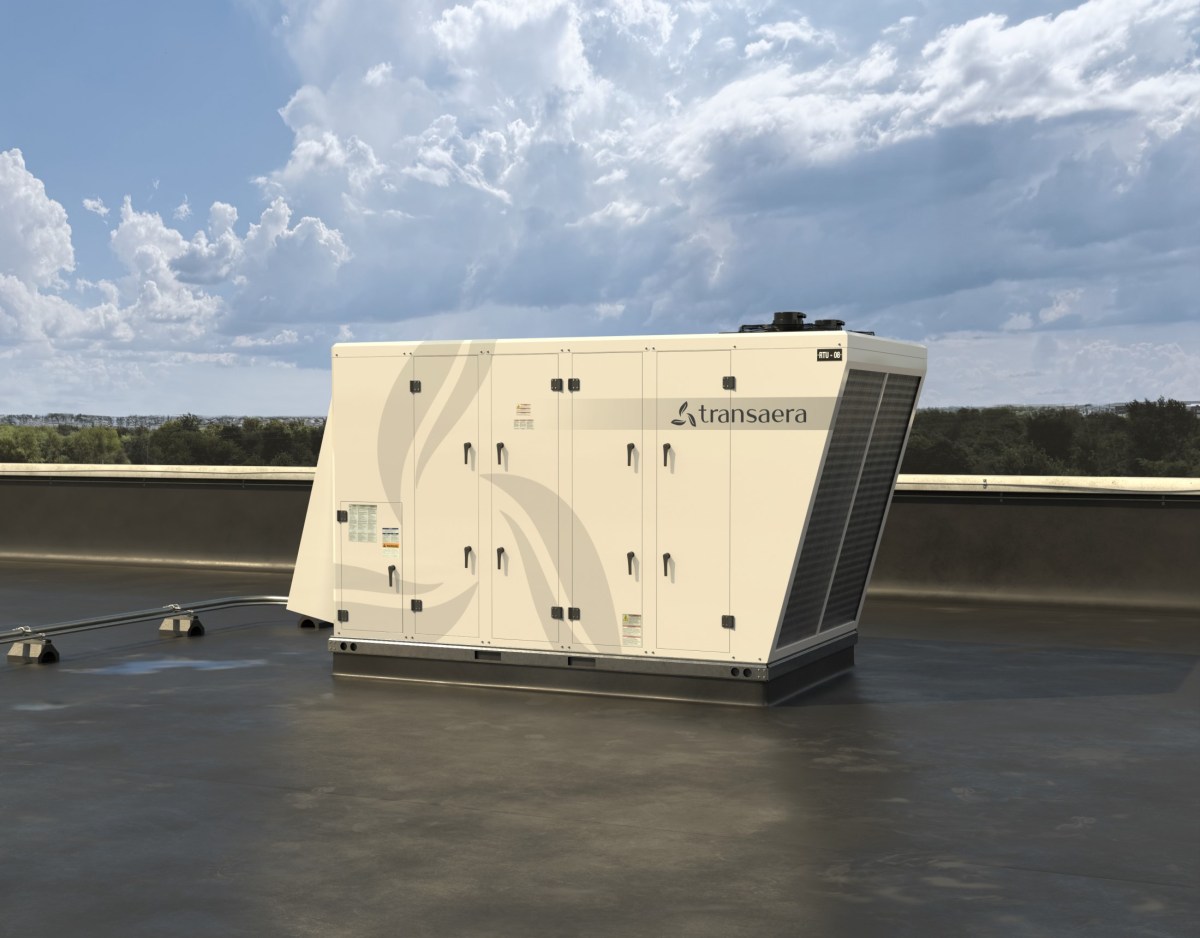Transaera co-founder and CEO Sorin Grama may not have expected his startup to end up on the roof of a warehouse, but he’s happy to have landed there.
Over the summer, the company installed a massive ventilation system, known as a dedicated outdoor air system (DOAS), which dehumidifies fresh air coming into the warehouse, allowing the building’s air conditioning to operate more efficiently. That one box helped unlock $8.2 million in seed funding, Grama told TechCrunch.
“This new funding really came on the success of that commercial design and installation,” he said.
The company has been toiling for seven years, developing a novel air conditioning technology and searching for a market that would give them a jump start. The core dehumidification tech really could have been deployed anywhere. But its first home, atop a sprawling commercial building, helps Transaera get a foothold before tackling other markets.
The commercial HVAC market, “really wants — demands — more efficient systems,” Grama said. “From a customer perspective, there are lots of incentives for higher efficiency AC,” including occupant comfort and lower electricity bills.
Previously, the company had envisioned its first product to be an in-home air conditioning unit, and Grama said it’s still committed to delivering one. Prototypes reveal a slick, wood-accented unit that resembles a mid-century modernist take on an old radio cabinet.
But the consumer market is “very cost driven, marketing driven,” he said. For now, the residential work has been put on the back burner, he added, though research and development for the project will continue with the help of $2.3 million in grants that Transaera was awarded by the Department of Energy.
Focusing on DOAS installations lets the company prove its technology in the field without having to invest in expensive marketing, manufacturing, and distribution. The new seed funding, led by Clean Energy Ventures with participation from Energy Impact Partners and MassMutual Ventures, will allow Transaera to make more DOAS pilot units and install them on commercial buildings.
“Initially, we have to build complete systems because we have to show how this works,” Grama said.
Ultimately, Transaera won’t be making the whole widget, but manufacturing components to ship to major HVAC companies, who can then assemble the entire system to be marketed and sold under their names.
“Once the technology is proven, once we have a few systems out there, the goal is to get the interest of the Carriers, the Trains, the Mitsubishis of the world to look at this and start incorporating this kind of dehumidification technology into their own products,” Grama said.
“Humans need better, more comfortable conditions, given the warming world,” he said of the decision to focus on residential and commercial buildings over data centers. “I think that’s where this product will have the biggest impact.”

